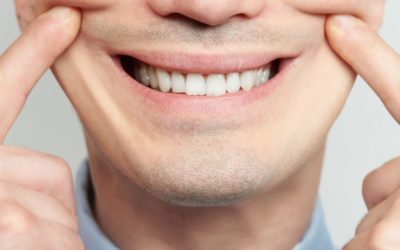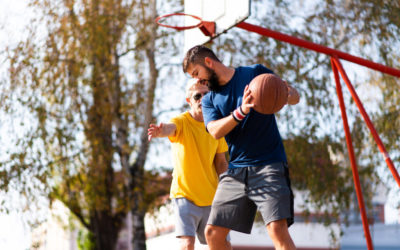Quick Hits
Daily brief research updates from the cognitive sciences

The headline is a bit of a sweeping statement, whether that is generally true is open to further research (and is in fact supported by plenty of other research), but that was what was found in this particular context of leaders of collaborative teacher groups.
So, what was this study and how did it show that humility improved performance?
This study was done in China in what are called Teacher Research Groups (TRG). These are what would be called Professional Learning Communities (PLC) in other parts of the world where teachers group up to share their experiences and to guide better learning and improve the quality of teaching. These are led by an experienced educator.
The study by Yun Qu of Ohio State University followed 537 teachers in 238 TRGs in various locations, urban and rural. They rated the group leaders on three dimensions of humility:
- Willingness to view themselves accurately (e.g. their knowledge or lack thereof)
- Appreciation of others’ strengths
- Teachability (i.e. being open to others’ advice).
The data showed that those in groups with leaders who showed the highest humility reported multiple positive results all of which can be directly correlated to higher performance:
- Reported sharing more knowledge and expertise at TRG meetings
- Reported higher levels of psychological safety
- Felt they could take risks and others wouldn’t undermine their efforts
- Felt more empowered
All these are very positive findings. In the case of the TRGs, this made them more effective and serve their purpose better which is sharing knowledge and expertise, learning, and applying this knowledge and expertise in the classroom.
All of the above are, however, standard themes in standard corporate leadership literature and all have large bodies of evidence behind them to show their effectiveness. In fact, psychological safety is a big theme currently in corporate development.
So, though this was conducted in China in a specific context the findings suggest that this would be transferable to many leadership scenarios because they are eliciting the exact same results that leadership literature does point to and I am sure all businesses would be more than happy to have – and is supported by masses of literature on the subject:
- Increased sharing of knowledge and expertise
- Increased psychological safety
- Higher empowerment
And that is helped by leadership humility – other research has shown that leadership narcissism does the exact opposite.
And just yesterday I was closing a workshop for a team that is world-leading (no exaggeration) in their field. What struck me was that the leadership, on top of being very knowledgable, results-focused, and very experienced in their roles, were also very open, caring, and humble.
They were also explicitly trying to (further) improve the above three points, hence the workshop. They were doing that because they know that will be critical to their results and success.
So, here’s to a healthy dose of humility in leadership!

Andy Habermacher
Andy is author of leading brains Review, Neuroleadership, and multiple other books. He has been intensively involved in writing and research into neuroleadership and is considered one of Europe’s leading experts. He is also a well-known public speaker, speaking on the brain and human behaviour.
Andy is also a masters athlete (middle distance running) and competes regularly at international competitions (and holds a few national records in his age category).
Reference
Yun Qu, Jinjie Zhu, Roger D. Goddard.
Modesty brings gains: linking humble leadership to knowledge sharing via psychological safety and psychological empowerment in professional learning communities.
Educational Studies, 2022; 1
DOI: 10.1080/03055698.2022.2103648
More Quick Hits
Yes, Fake Smiling Does Improve Your Mood
Can just smiling, even if fake, improve your mood? This has been proven, debunked, re-proven and now re-re-proven…
How Your Brain Decides to Help Others in Danger
In times of crises and danger we may hide and flee as our natural instincts would guide us, or do something else: put ourselves at danger and help others.
Two Types of Willpower
There are two types of will power – and one is much more effective…
Our Brains Seem to Use Quantum Computations
It has been proposed that our brain uses quantum processes but this is hard to prove – until now that is…
Insults Trigger the Equivalent of a Slap to the Face in the Brain
What do insults do to our brain wave patterns, do they degrade over time and how do they compare to compliments?
Even a Short Bout of Exercise Can Boost Brain Growth
Exercise is good for you – we all know that. But can just a single bout of exercise do you and your brain any good?






